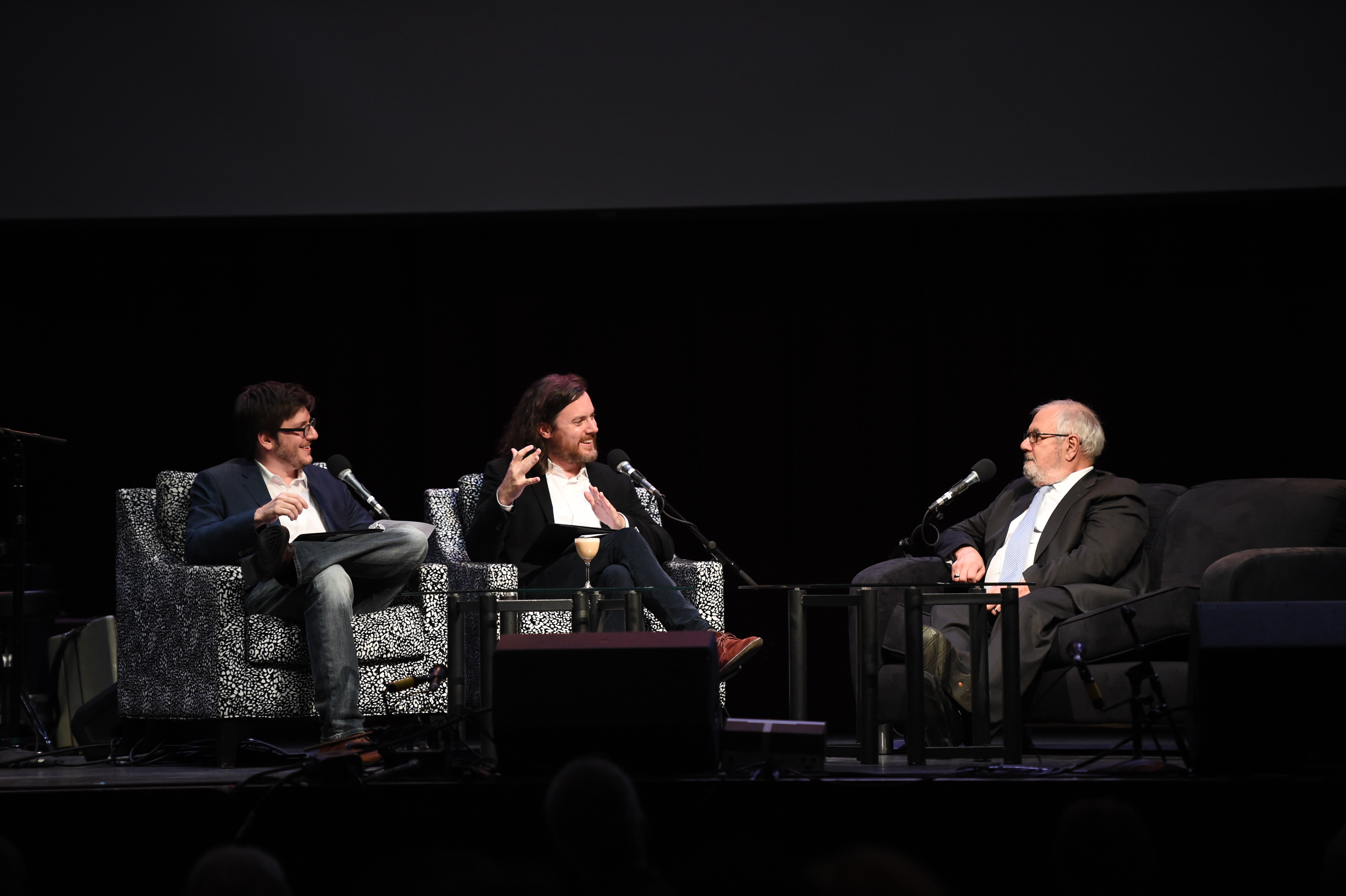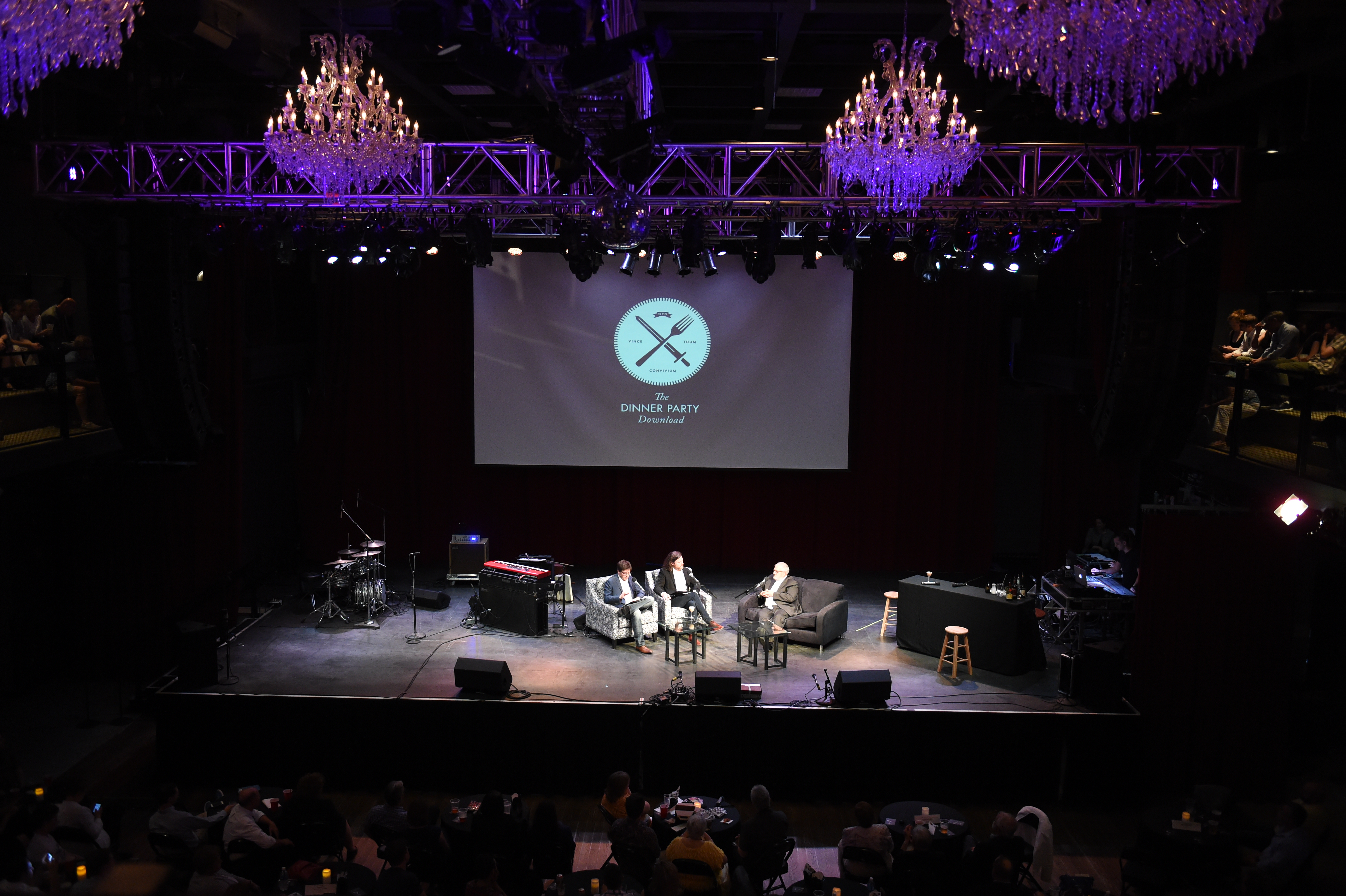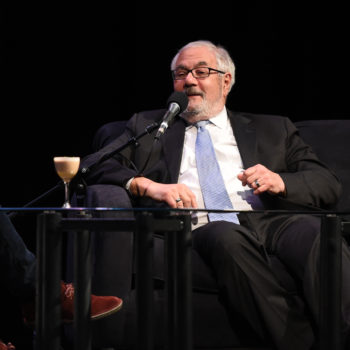The opinionated former Congressman lived up to his last name at our Washington, D.C., show. He held forth on Trump, Hillary, Bernie, and why incremental change is the only change he can endorse. He also shared some personal history about what drove him into politics and out of the closet, which you can read more about in his book, “Frank: A Life in Politics from the Great Society to Gay Marriage.”
Rico Gagliano: We were reading your book, and there’s a great public radio-related anecdote in there, having to do with Cokie Roberts, née Cokie Boggs, and a strange encounter you had with her father early in your career.
Barney Frank: Yeah, Cokie’s father was a congressman named Hale Boggs. He was the Majority Leader of the House of Representatives. Hale Boggs was a very liberal, white Southerner, but he was still a white Southerner. He was the Communist from New Orleans, and he was moving in the direction of recognizing that racism had to end, but it’s not something you can do right away, and I think people don’t give an elected official like that enough credit.
I had gone to Mississippi in 1964 for the Mississippi Summer Project, to document the efforts we were making to have Black people register to vote.
Rico Gagliano: These are kind of the Freedom Riders.

Barney Frank: Yes. I was very soon put into a more administrative position because, as people might not be surprised to learn, a substantial number of Mississippians, white or black, had no idea what I was saying. I was then even closer to my New Jersey origins.
On the way back, I stopped off in Washington, and I needed a place to stay. So, I talked to Cokie, who was a good friend, and she said, “Well, stay at our house.” I got there, and she said, “Oh, good. Well, you go sleep in the basement.” They had a nice room in the basement.
I came upstairs that morning. Hale Boggs was sitting at the table. I sat down. As he later told the story, he thought I was the exterminator. I came up from the basement. His daughters had not prepared him for my arrival, and when I poured myself a cup of coffee, he figured something was up. So, he asked me, and I explained to him that I was there to help with the Mississippi Summer Freedom Democratic Challenge.
He said, “Son, did you sleep OK?” Yeah. “Was the bed all right?” Yes, sir. “Breakfast fine? The coffee good?” Yes, sir. “So, we treated you pretty good?” Oh, yes, sir, you have. “Well, don’t ever tell anybody, please.”
He confronted his daughters later and said, “You know I am trying hard to move in the right direction, but it sure as hell doesn’t help me if it gets out that we are a stop on the Underground Railroad.”
Rico Gagliano: Cokie Roberts’ dad, ladies and gentlemen.
Brendan Francis Newnam: You write in this book about when you were 14, you knew you were gay. You also knew you wanted to be a politician. I can maybe understand knowing I was gay at 14, but being a politician?
Barney Frank: Well, one of the first things I remember — you know, I’m gay and I fought hard for equality for us, but the single besetting sin of America has been racism, and that’s been the most difficult struggle, and we’re making great progress. Obviously, we have a distance to go.
But I was 14; I read in the paper, a 14 year-old named Emmett Till, a black kid from Chicago who was visiting family in Mississippi, and he looked at a white woman in the wrong way and was brutally murdered, and it became clear not only that law enforcement hadn’t protected him, but they were in on it — the law enforcement. I said, “How could this happen in America?”
I learned that it was because the Southerners had been able to filibuster any legislation whereby the federal government could step in to protect people. So, I said, “I want to change that. That’s awful.”
And then there were the hearings. There was Senator Joe McCarthy, the worst demagogue in American history, and he was savaging people. They had a hearing to stop McCarthy, and I was really impressed with that, and I saw the very skillful verbal mechanics diffusing this guy.
I saw people who were good at talking, and I was good at talking … I thought, you know, I can do that. I would like to help deal with this kind of racism and help deal with people like that.
Brendan Francis Newnam: But you knew that you were going to have to stay closeted at that point. It wasn’t an option.

Barney Frank: Not even close. I mean, Dwight Eisenhower, who, by today’s Republican standards, was very liberal — he promulgated an executive order when I was 14 that said if you were gay — they didn’t use the word “gay.” I mean, I was talking to people that said, “Oh, LGBTQ.” I remember when it was just “F.”
What happened was, he put out an executive order that said, if you’re gay, you can’t get a security clearance. The New York Times had headlines back then about “sex perverts,” meaning us. I knew I would never be able to win an office, and so I began to think, “OK, I’ll have to figure out a way to go to work for other elected officials and keep the fact that I’m gay a secret.”
Rico Gagliano: This is your quote: You wanted to “be a coward but not a hypocrite.”
Barney Frank: That came a little later, when I decided I finally could run for office in a very unusual part of Boston, which was full of people who’d never lived in Boston. That was 1972. The people that had always lived in Boston were not that nice, but it’s evolved.
Rico Gagliano: Sorry, Boston, if you’re listening.
Barney Frank: Boston is a much more urbane place right now. I realized I could get elected in this kind of yuppie — before we used the word “yuppie” — area, but I knew if I was honest about my sexuality, I couldn’t win. But I did make that decision at the time that I would be a coward but not a hypocrite. That is, I would not be honest about my own sexuality, but I would never, ever refrain from fighting against the prejudice.
Brendan Francis Newnam: You write poignantly about the agony of that kind of bifurcated life. You were at these events, and you would be there for the political portion, the public portion, the fundraising portion, and then, when the private part of the party would start, you would have to go home. Ultimately, you decided it was unbearable.
Barney Frank: Back then, there was this argument: He or she doesn’t have a private life, but his public career makes up for it. That’s nonsense. Everybody has physical and emotional needs that cannot be satisfied by the best public career, and, in fact, what I found was that I behaved somewhat irresponsibly trying to find outlets.
Finally, in the mid-80s, I said, “No, I have to come out,” for a couple of reasons. First of all, AIDS was then around. I thought, OK, you’ve got to confront this. Secondly, I began to feel a little bit bad about people younger and more vulnerable than myself who were out, but mostly I said, “I can’t live like this.”
I did become the first member of Congress to come out voluntarily, just about Memorial Day, 1987.
Rico Gagliano: We have to ask you one thing about the current political scene. You write that, “Incremental changes made from within the system are the best way to get good things done in politics.” This election season, even more so than maybe others in recent memory, there’s been a lot of reaction against that way of thinking on both sides of the aisle. Many are clamoring for major change right now. What is your best argument against that way of thinking?
Barney Frank: That it is impossible, and the evidence is that it hasn’t happened. I said it was the best way. I was wrong. It’s the only way!
The fact is, things are the way they are because forces have created them, and the notion that, if you say it loudly enough and emotionally enough, you can make changes in existing structures, is simply wrong. I wish it was possible to do these things more quickly, but I wish I could eat more and not gain weight. What I find is that, if I ignore reality with my wishes, it doesn’t get anywhere.
Rico Gagliano: Can you blame them for this kind of clamor?
Barney Frank: Yes. I’ll tell you who I blame. Can I blame people who tell me they are so eager to get money out of politics, and deal with global warming, and increase equality, that they’ll vote for Donald Trump, who’s against every one of those things? Against Hillary Clinton, who’s for them, although not maybe as much?
I blame people for stupid voting, but even more, here’s who I blame. I hear people say, “You know, I’ll tell you this about Bernie Sanders. You should be grateful to him because he’s gotten me to vote. I haven’t voted.” My answer is, well, shame on you. I had this with Occupy (Wall Street). I agreed much more with Occupy than the Tea Party, but the Tea Party out-organized Occupy enormously.
And I met an Occupier on the Bill Maher Show, I said I was disappointed I never saw a voter registration table at an Occupy site. She said, “That’s not what we were into.” Well, people who help the right wing control Congress by refusing to join in our opposition to them, and then complain to me because the right wing controls Congress, get no sympathy from me.
[This interview has been edited and condensed.]


